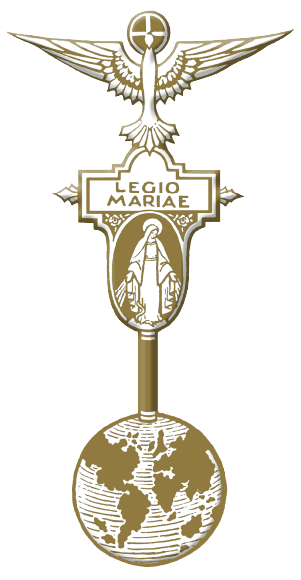Teaching Christian Doctrine to Children
Concilium Allocutio August 2011
By Fr. Bede McGregor O.P.
Spiritual Director to the Legion of Mary
Teaching Christian Doctrine to Children
By any objective standards the Chapter in the Handbook on ‘Suggestions as to Works’ is very impressive and challenging. Any Bishop or Parish Priest reading this chapter would be amazed at what the Legion could offer them if given half a chance or some encouragement. Many of these works are universally urgent and relevant in most parts of the Catholic world today. Of particular importance is the section on ‘Teaching Christian Doctrine to Children’. The Legion has a long and fruitful history in this field in many parts of the world. Teaching Catechism to children was one of the earliest works undertaken by Bro. Duff himself as a young man. He knew from personal experience the rich possibilities of this apostolate not only for the children but also for their families and neighbourhood. It is not surprising that he describes this apostolic work in the Handbook as ‘this supremely valuable work’.
But why is this work supremely valuable? Basically, teaching catechism is to introduce a child to Jesus as his greatest friend and the deep meaning of his life. Can there be any work more sublime than that? This was and is the vocation and mission of Mary: to give Jesus to us. Surely, it must have a special place in the Legion of Mary. I am reminded of the words of Pope Benedict: ‘There is nothing more beautiful than to be surprised by the Gospel, by the encounter with Christ. There is nothing more beautiful than to know Him and to speak of our friendship with Him’.
Through his years of work as a member of the St. Vincent de Paul Society in the depressing slums of Dublin and later in his habitual presence of many other types of poverty in the Hostels that he started, Frank Duff knew a great deal about the need to relieve material poverty. The corporal works of mercy are an integral part of the Christian life. As Christians we cannot abdicate our responsibilities in this area. But our Founder believed with utter conviction that the greatest poverty of all was the poverty of the soul. The most profound deprivation for anyone but especially a child is to be deprived of the gift of faith, of a knowledge and love of Christ. The greatest gift you can offer anyone is the gift of our Catholic faith. There is absolutely nothing more precious than our Catholic faith. This conviction must be the first and permanent motivation behind all teaching of Christian doctrine. Its value to a child is not only temporal but eternal.
For the Legionary there is of course another fundamental attitude and approach to his teaching of Christian doctrine. It is worthwhile quoting the Handbook on this point:‘In all works, the legionary watchword should be “How would Mary view and treat these, her children.” In this work, even more than in others, that thought should be vivid. There is a natural tendency towards impatience with the children. But a worse fault would lie in the imparting to the instruction of a mere businesslike and secular tone, in such a way that these classes would only be regarded by the children as additional hours of school. If this comes to pass, nine-tenths of the harvest will be left un-reaped. So once again consider: “How would the Mother of Jesus instruct those children, in each one of whom she sees her own Beloved?”’
It goes without saying that ‘special care is needed in selecting catechetical material which fully conforms to the Church’s teaching’. We are fortunate today that we have excellent material available to us. First, if possible, the Legionary should slowly study and pray his way through the Universal Catechism of the Catholic Church. If circumstances or opportunities make this too difficult, he could try the Compendium of the Catechism which is shorter and perhaps easier to assimilate. But failing these primary sources many Episcopal Conferences have produced local catechisms precisely geared to the teaching of children. Also there are quite a number enterprising Bishops who have produced their own catechisms and some of these are extremely good. Anyhow, the point here is that if a legionary is going to teach catechism, he needs to have a basic and up to date knowledge of a catechism that is well informed by the teaching of the Second Vatican Council and the local cultures and languages.
Does one need to do a catechetical course? Obviously it could be very useful but one would have to be careful in choosing such a course. But it is not absolutely necessary to do a formal course. Most parents have neither the opportunity nor the time to do these courses and yet the Church exhorts them to be the first teachers of the faith to their children. True teaching of Christian Doctrine is not merely a question of imparting information about the faith but also sharing our own faith convictions especially by example. It seems to me that if we are going to teach catechism the basic question is what does our Lord actually and in practice mean to me?
In conclusion I think it would be a tremendous thing if Legionaries throughout the world would discuss this section of the Handbook afresh and discern in each praesidium what is the best way for them to engage in that ‘sublimely valuable work’ of teaching children the faith. We must be in the business of saving the children of our world.

